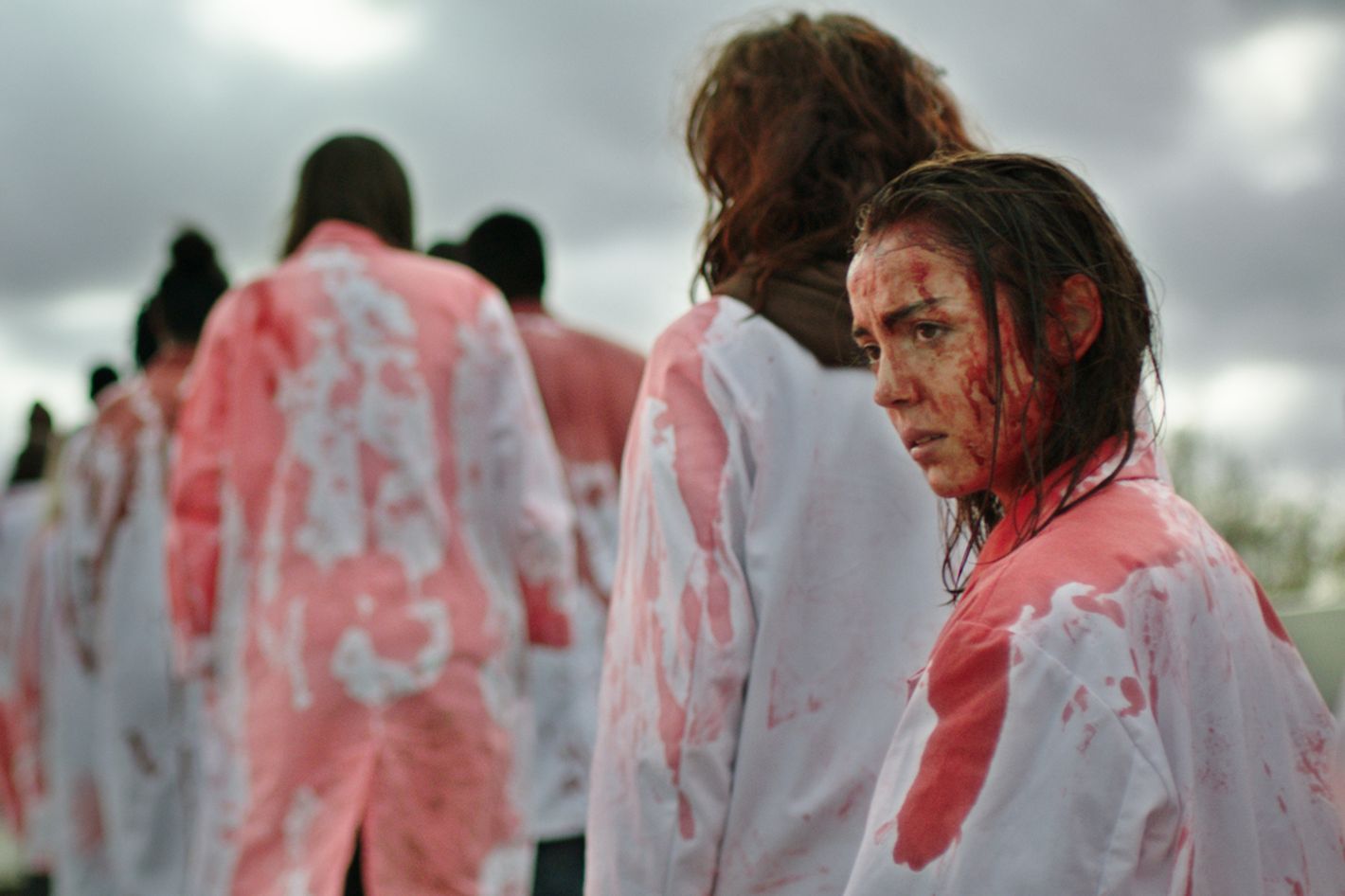Descent into insanity or embrace of true nature? The audacious, outrageous French horror film Raw is as unsettling as movies come, a full-blooded freak show with patently serious psychological currents, convicted performances and a lot on its mind about its uncomfortable constitution of feminism, sex, body horror and self-actualization.
First time French filmmaker Julia Ducournau, exhibiting an auteur’s grasp on narrative and technique, jolts our sense of good taste with her tale of a college freshman who develops a predilection for cannibalism. This fascinating movie, which calls to mind Cronenberg’s Rabid and Marina van Dam’s In My Skin, uses its lurid premise to explore a personal and sexual awakening as well as a family reckoning.
After shy Justine (Garance Marillier) is promptly dropped off at a prestigious veterinary college, a few things are quickly apparent: she’s the smartest in the freshman class; she’s a virgin intrigued with her sexy, gay roommate (likeable Rabah Nait Oufella); and she’s a bit of a wallflower, shrinking from the usual social mixers, a classic loner uncomfortable in her own skin.
The school is the sort of isolated, sterile facility owing a debt to Cronenberg, and Ducournau takes her time establishing the creepy milieu, one where days consist of animal vivisections and nights a blur of wild parties, one of which gives the film an intense, inspired visual flourish of painted bodies, colors bleeding.
The freshman class is mercilessly hazed—pulled from their beds half-naked, drenched in blood and forced to eat raw animal livers, a trial for staunch vegan Justine, egged on by older sister and upperclassman Alexia (Ella Rumpf). This nauseous episode is the story’s first real turning point and the birth of an insatiable craving that eventually brings Justine closer to womanhood, outrageous as it were.
It isn’t long before Justine finds herself poaching meat from the school’s lunch counter, devouring raw chicken and ultimately human flesh and blood, which is as gruesome as it sounds and truly, beautifully nauseating. In harrowing scenes memorably scored by jangling, unsettling music by composer Jim Williams, Raw achieves a sort of dark poetry, finding real beauty in its ugliness as its camera lingers, in close-up, over star Marillier’s face, convincingly etching a portrait of psychosexual awakening in lipstick, blood and her own attraction and revulsion.
One of the film’s great strengths is how it simply presents shocking events—such as a Grand Guignol moment involving a severed finger—with a matter-of-fact directness focused on the slippery psychological slope of a fully flowering obsession that justifies the such onscreen atrocities, which sent a preview audience fleeing.
At the core of this obsession is a twisted symbiosis between sisters Justine and Alexia, involving a centerpiece sequence not seen in any movie prior and which will undoubtedly be the most talked about in this picture. Rumpf, strikingly evocative, casts a haunted shadow over each of the picture’s later scenes, including a roadside accident and its unnerving aftermath.
Lest anyone think this is an exploitative movie that exists as provocation, it defies its genre in its depth of understanding of loyalty and competition between sisters, and in a final statement about family unity in the face of the unthinkable, raising questions about the legitimacy of neuroses coursing through bloodlines.
Raw is a humdinger of a horror picture, a convincing portrait of rising madness and very frightening depiction of self-awareness in the face of the inevitability of nature.
4 stars.



